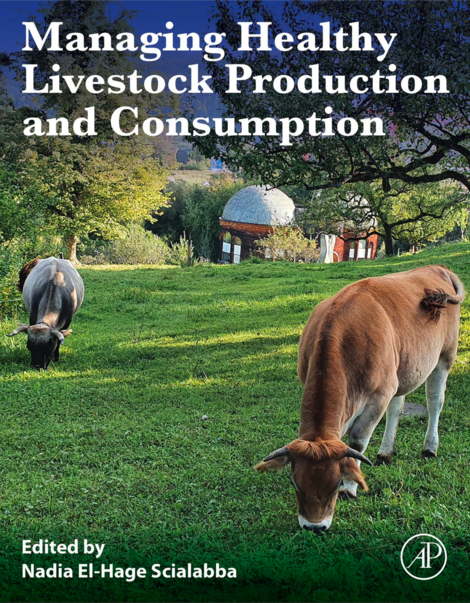Modern agriculture, particularly animal husbandry, is often cited as one of the leading causes of human-made climate change. However, animal husbandry can also take place in harmony with the surrounding ecosystem and even help to repair damage already done. Technological solutions often require much time, human and financial resources and, in many cases, are less effective than the natural grazing behaviour of cows and other ruminants. Two keys to more sustainable agriculture are a holistic approach and understanding large-scale landscape management through grazing.
Based on their water balance, ecosystems can be divided into humid (more rainfall than evaporation) and arid (less rainfall than evaporation). While in humid ecosystems there is enough water to ensure the complete decomposition of dead plant material, in arid systems plant remains tend to dry out instead of decomposing. This impairs nutrient recycling in the soil. However, livestock has an important role, especially in arid systems. The grazing behaviour of the animals supports the decomposition of biological material through trampling, dung and urine. Livestock movements break up dry, hard soil and incorporate plant residues into the soil. The addition of dung and urine improves water infiltration into the soil and water retention in the soil. In addition, overgrazing of the plants can be avoided.
One possibility of estimating the ecological impact of livestock farming is to examine the carbon balance. For this, all inputs and outputs of carbon into an ecosystem are offset against each other. This includes animals, soils and plants, but also interactions between the soil and the atmosphere, as well as other aspects. Using this method, it was demonstrated for the Sahel that pasture systems can have a neutral carbon balance or can even represent a carbon sink. Globally, regenerative grazing systems could reduce the carbon footprint significantly more than a mere reduction in livestock numbers, as overgrazing is not caused by an excessive number of animals, but by them staying on the same plot for too long and the plants having insufficient recovery time between two grazing rounds.
In the 1960s, Allan Savory developed one method of environmental management through livestock to counter desertification. It is called holistic planned grazing and assesses whether livestock farming on a given area of land is socially, ecologically and economically viable, considering future generations. Scientific studies on holistic planned grazing have shown that this method can improve the water balance of soils. Other benefits include increased land cover, more available livestock feed, a more diverse plant species composition, and higher profitability for farmers.
In the face of climate change, well-planned grazing management can capture part of the atmospheric carbon in the soil, slow down or even reverse global desertification, curb deforestation and regenerate depleted soils. Thus, holistic planned grazing combines several benefits: securing food production, improving soil quality and storing carbon in the ground.
Comment
The natural grazing behaviour of livestock covers aspects of landscape management that cannot be achieved to the same extent by technical means. However, this form of environmental management requires a change in thinking, both on the part of the farmers concerned and on the part of consumers of animal products. Livestock farming can make an important contribution to food security and the preservation of ecosystems, especially in arid regions.However, this requires individual solutions that are adapted to the specific geographical conditions. One-size-fits-all solutions are not effective. The often-heard argument that pastoral farming consumes too much land is thus turned around: only pastoral farming, if properly managed, makes it possible to regenerate large areas of land fully.
Book information
- Editor: Nadia El-Hage Scialabba
- Title: Managing Healthy Livestock Production and Consumption
- Publication: First edition December 2021. Swette Center for Sustainable Food Systems, Arizona State University, Tempe, AZ, United States. Copyright Academic Press 2021.
- Link: https://www.elsevier.com/books/managing-healthy-livestock-production-and-consumption/el-hage-scialabba/978-0-12-823019-0
Further information
- TED talk by Allan Savory on holistic planned grazing: https://www.youtube.com/watch?v=vpTHi7O66pI
